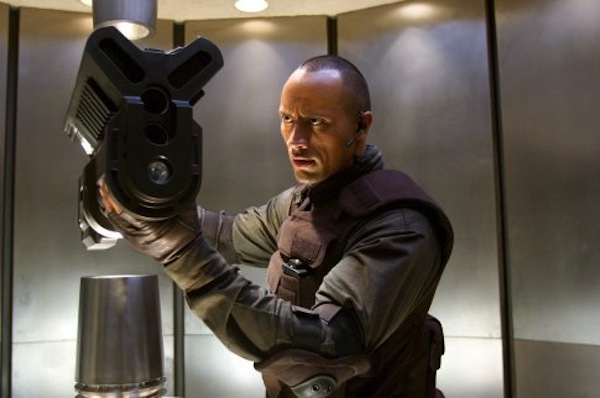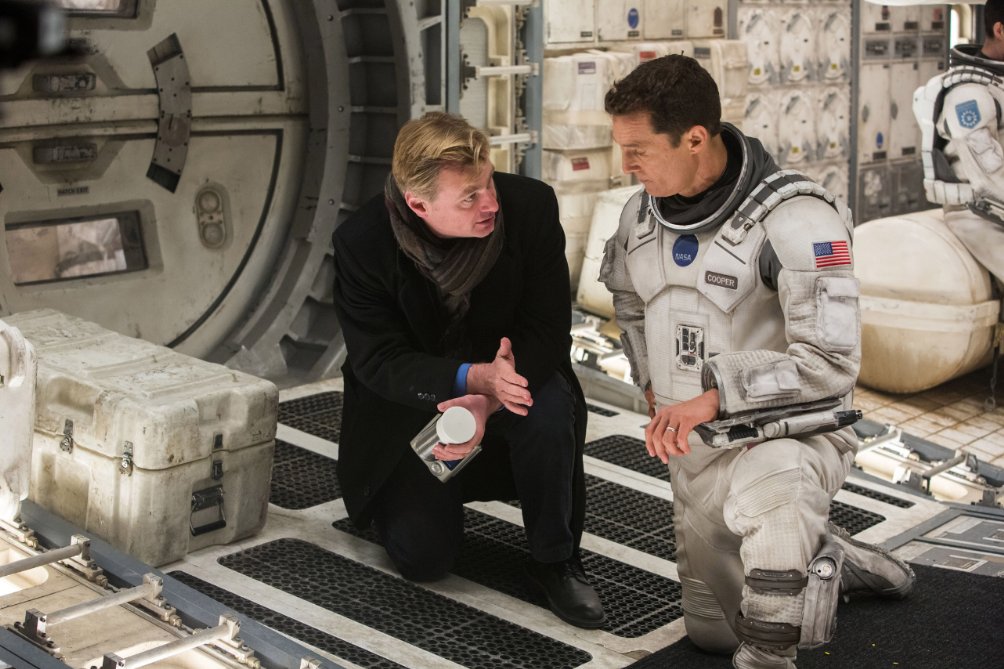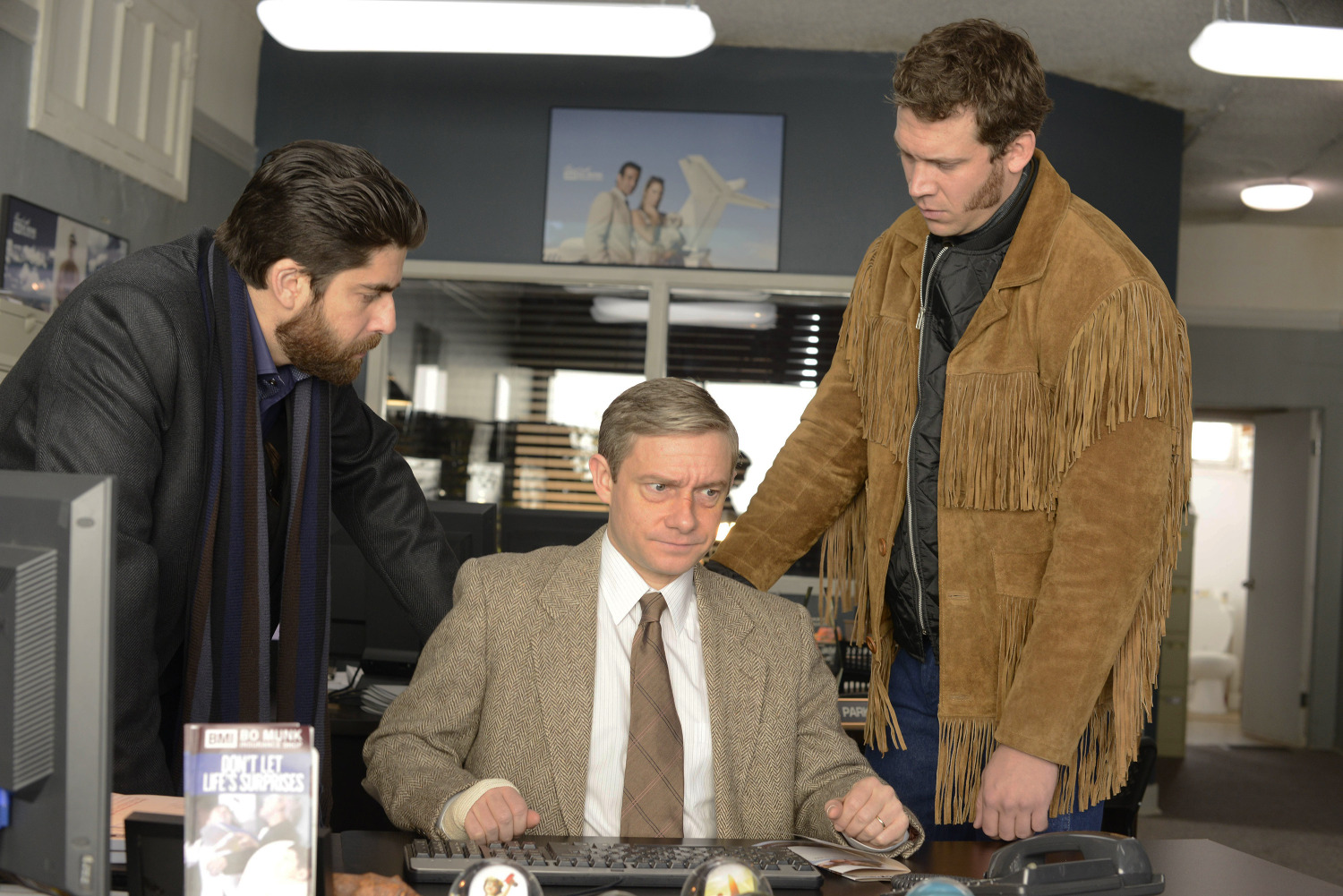
It’s been such a deathly slow year at the movies so far that attempting to list ten great TV series is far easier than naming ten great films. With the premieres of TV’s two best shows, Breaking Bad (July 15, AMC) and Louie (tonight, FX), imminent, it seemed as good a time as any to take stock of the best episodes of 2012 – with a strict limit of one episode per show. Not an easy task as it is, so I’ve saved myself the trouble of ordering them.
Archer, “The Limited”
Archer’s third season represented a very slight dip from its excellent sophomore outing, but that’s not to say it didn’t feature a number of fantastic episodes. “The Limited,” a sequel-in-spirit of sorts to past antiquated-mode-of-travel outing “Skytanic,” revisits many of the show’s most dependable running gags and character beats, while featuring some of the moreeffectively over-the-top action beats of the season. Though, frankly, it might have been even better had it consisted entirely of Archer and Babou the Ocelot kicking it in the back of a Mountie cruiser.
Awake, “Turtles All the Way Down”
Kyle Killen’s second crack at broadcast-network success made a little more of a dent than Lone Star – at least it got to air its entire, sole season – but it might be time for him to stop trying. Awake hitched its fascinating emotional landscape and striking premise to a police-procedural format that just didn’t work much of the time, and the compromise resulted in a show that was occasionally striking, always beautifully acted, and frequently frustrating. As one last twist of the knife, the series finale is pretty handily the show’s best, a wonderfully loopy hour of jaw-droppingly bizarre twists, unexpected humor, and satisfying ambiguity. Despite the many showrunners who have cited Twin Peaks as an influence, hardly any series have ever replicated that show’s blend of spontaneity and humanity. “Turtles” exhibits that rare quality, and signals just what Killen might well be capable of off the leash.
Fringe, “Welcome to Westfield”
Fringe‘s spottiest season since its first went down a whole lot of blind alleys in its master plot, but occasionally found time for effective one-offs like this one. The Stephen Root guest-starrer “And Those We’ve Left Behind” may have been more touching, but “Westfield” revived the show’s diminished sense of freaky tension, recalling some of the better episodes of The Outer Limits in its economical development of outlandish concepts and rapidly escalating stakes.
Game of Thrones, “A Man Without Honor”
“Blackwater” may have had the hype (and the budget bump), but “A Man Without Honor,” pound-for-pound, packs in more humor, shock value, and stellar acting than any other in Game of Thrones‘s mostly-solid second season. From Theon’s episode-closing gambit, featuring the charred, hacked remains of two children he passes off as the “little lords” of Winterfell, to the many scenes spent with the excellent Nikolaj Coster-Waldau as the awesomely disrespectful Jaime Lannister, “Honor” is far from the season’s most eventful outing, but it’s probably its most consistently entertaining.

Girls, “The Return”
There’s been some serious hyperbole thrown around about Girls‘s inaugural season, with some claiming it as the greatest, most groundbreaking show currently airing almost immediately upon its arrival. Frankly, I wasn’t all that taken with the first couple of episodes, which too comfortably recalled Lena Dunham’s sadly unfunny film, Tiny Furniture, but by midseason, its charms began to become clear. In “The Return,” Dunham wisely expands the show’s scope a bit to hone in on Hannah’s parents, and the results are touching, hilarious, and genuinely surprising. It strikes precisely the sort of balance I’m hoping the entirety of the show’s 2013 season will.
The Good Wife, “Alienation of Affection”
One of the most consistent shows around, CBS’s The Good Wife rarely rises much beyond “very good,” but occasionally it hits a higher gear. Often, that’s the result of the show finding a new way to approach a familiar subject, or when it explores an obscure legal avenue rarely (or never) broached on TV. That was the case with last year’s “Executive Order 12334” (possibly the series’ best outing) as well as the sly Matthew Perry guest-starrer “Blue Ribbon Panel.” But the strongest of the third season’s 2012 half was most likely its first, in which an archaic divorce law propelled a stirring case, Alicia faced down a very tense situation involving a missing document, of all things, and David Lee showed up in an awesomely silly Gilbert and Sullivan getup. Throw in Carrie Preston and F. Murray Abraham just for added kicks, and you’ve got yourself a season highlight.
Justified, “Slaughterhouse”
Fans were divided on Justified‘s ambitious third season, which saw Graham Yost and company double down on villains, expand the show’s rural Kentucky setting to include a mostly-black backwoods called Noble’s Holler, and tease out some surprisingly dark character beats for its heroes and villains alike. For my money, this season was by some distance the show’s best, and “Slaughterhouse” far and away its best finale, resolving nearly every plot thread in rollicking fashion while finding time for bits of comic genius between the wanton bodily harm. Special credit goes to Jere Burns, whose steadily-mounting panic over the course of the season reaches a hilarious fever pitch in the episode’s pre-credits scene.
Luck, “Episode Five”
David Milch’s intimate, meticulous horse-racing drama drew mostly disinterest from audiences and ended its only season as a punchline, but the show’s middle stretch hits some mighty peaks, thanks to Milch’s incredible writing, nail-biting race sequences, and a stellar ensemble cast. Really, any of the installments between “Episode Four” and “Episode Seven” could take this spot, but “Five” just edges out the others, if only for bowing out with the most touching shot of the entire series: Ace Bernstein (Dustin Hoffman) sitting with his beloved, recuperating horse overnight, to the strains of Devendra Banhart’s “Now That I Know.” Here’s hoping Milch and some of his incredible cast can reunite for another, less controversy-courting endeavor.

Mad Men, “Far Away Places”
While I have some reservations about where Mad Men‘s justly lauded fifth season wound up in its last few episodes, there’s no doubt that it contained about a half-dozen incredible episodes, some of which might be their best ever. While “The Other Women” launched far more thinkpieces, “Far Away Places” was the most formally daring and stylistically wild episode of the season, with its tripartite format nimbly sketching a half-dozen of the show’s characters in key moments of transformation. It actually manages to live up to or exceed any expectations viewers might have had, had they known in advance that it was going to feature Roger Sterling dropping acid.
Parks and Recreation, “The Debate”
The city-council election plotline lit a fire under the ass of Parks and Rec‘s fourth season, which had previously been consistently amusing but a little slight. “The Debate,” written and directed by Amy Poehler, is a great showcase for almost everything the show is great at, exhibiting the show’s (and Leslie Knope’s) tireless optimism in the face of colossal idiocy as well as using most of the show’s supporting players from every corner of Pawnee to great effect. And it even finds time for Nick Offerman’s rendition of “Wichita Lineman.”
Simon Howell




